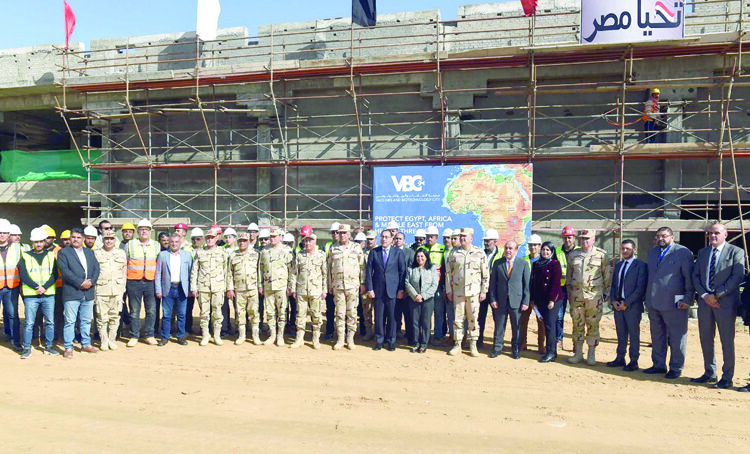Prime Minister Moustafa Madbouli paid a visit on Wednesday to Ismailia governorate to follow up the implementation rates done to date in the project of the Vaccine & Biotechnology City (VBC).
The project is being carried out by the National Service Projects Organisation (NSPO), in co-operation with a number of private sector entities.
The project consists of 17 buildings for management, laboratories, incubators and service facilities.
During the tour, the prime minister affirmed that the government has made great efforts to provide anti-coronavirus vaccines to all citizens since its manufacture in a number of world countries, in accordance with President Abdel Fattah El Sisi’s directives in this regard.
He pointed out that the Egyptian state has spared no effort to produce anti-Covid-19 vaccines locally. The government was keen to develop medical sector over the past few years to offer better health services to people.
“Egypt has high capabilities to absorb vaccine manufacturing technology to ensure the availability of various types of vaccines for the public, in addition to export to African countries,” Prime Minister Madbouli said.
He hailed the huge efforts being made in the project and gave directives for the completion of the project on schedule and according to the most up-to-date global specifications and standards.
Egypt sought to manufacture vaccines through the Egyptian Holding Company for Biological Products and Vaccines (VACSERA) in 6 October City and this huge facility in Ismailia, the premier said.
NSPO Director General Walid-Abul-Magd said the project, being established on an area of 37 feddans on the outskirts of the city of Ismailia, is aimed to construct a medical facility with modern international specifications and standards to secure the country’s need of vaccines and medical equipment.
Meanwhile, Prime Minister Madbouli witnessed yesterday the signing of a co-operation agreement between the Eva Pharma for pharmaceutical industries, and the international Eli Lilly pharmaceutical company.
The protocol is aimed at localising the manufacture of biological medicines for diabetic patients in Egypt and for sustainable insulin supplies for low- and middle-income countries.






Discussion about this post